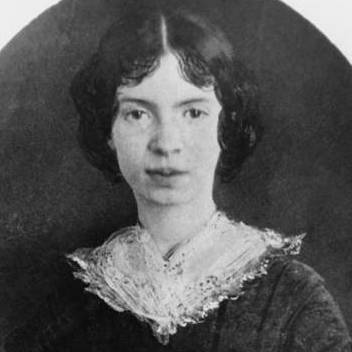I felt a Funeral, in my Brain,
And Mourners to and fro
Kept treading - treading - till it seemed
That Sense was breaking through -
And when they all were seated,
A Service, like a Drum -
Kept beating - beating - till I thought
My mind was going numb -
And then I heard them lift a Box
And creak across my Soul
With those same Boots of Lead, again,
Then Space - began to toll,
As all the Heavens were a Bell,
And Being, but an Ear,
And I, and Silence, some strange Race,
Wrecked, solitary, here -
And then a Plank in Reason, broke,
And I dropped down, and down -
And hit a World, at every plunge,
And Finished knowing - then -
Published:
1896
Length:
Regular
Literary Movements:
Romanticism
Anthology Years:
2024
Themes:
Death & Loss
Mental Health
Literary Devices:
Anaphora
a figure of speech in which words repeat at the beginning of successive clauses, phrases, or sentences
End Rhyme
when a poem has lines ending with words that sound the same
Metaphor
a comparison between two unrelated things through a shared characteristic
Quatrain
A stanza made of four lines.
Repetition
a recurrence of the same word or phrase two or more times

